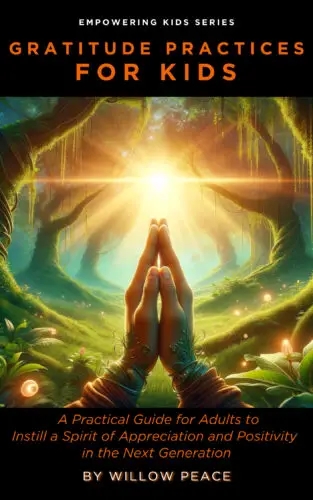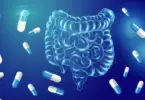January 17th, 2025
Staff Writer for Wake Up World
The resurgence of psychedelic research has brought to light remarkable findings about the potential of psilocybin, a compound found in psychedelic mushrooms, to address severe mental health challenges. Recent studies published in Nature Mental Health and The American Journal of Psychiatry shed light on the profound effects of psilocybin-assisted psychotherapy for cancer patients and individuals with alcohol use disorder.
Psilocybin Therapy: A Breakthrough for Cancer Patients
For cancer patients, the psychological toll of their diagnosis often includes debilitating anxiety, depression, and existential distress. A groundbreaking study conducted at NYU Langone Health revealed that psilocybin when paired with psychotherapy, can significantly alleviate these mental health symptoms.
“Our findings suggest that the mental health benefits of psilocybin therapy for cancer patients may reach far beyond what we have previously understood,” stated Dr. Petros Petridis, the study’s lead author. The study demonstrated that a single or double dose of psilocybin, coupled with structured psychotherapy sessions, reduced anxiety, depression, and obsessive thoughts while promoting emotional resilience. These improvements lasted up to six months post-treatment.
Key Findings
- The study analyzed data from two clinical trials involving 79 participants diagnosed with cancer.
- Participants who received psilocybin experienced a notable reduction in psychological distress compared to those given a placebo.
- The therapy caused no lasting adverse effects such as paranoia or psychosis, emphasizing its safety under medical supervision.
Dr. Stephen Ross, the study’s senior author, highlighted the importance of these findings: “This analysis adds to the mounting body of evidence that psilocybin can be safely administered under close medical supervision.”
Transforming Lives: Psilocybin and Alcohol Use Disorder
A separate study explored the transformative potential of psilocybin therapy for individuals struggling with alcohol use disorder. Conducted by the same team at NYU Langone Health, this research revealed lasting positive personality changes in participants.
The study’s lead author, Dr. Broc Pagni, explained, “The personality changes brought about by psilocybin-assisted psychotherapy may help those recovering from alcohol dependence remain resilient to stressors known to trigger relapse.” These changes included reduced impulsivity, vulnerability, and increased emotional openness and acceptance.
Notable Outcomes
- Researchers examined data from a clinical trial involving 83 participants with alcohol dependence.
- Participants who received psilocybin displayed reduced depression and impulsivity, coupled with heightened emotional resilience.
- Personality changes were observed up to eight months after treatment, with men showing greater emotional positivity and women exhibiting increased openness.
Dr. Michael Bogenschutz, senior author of the study, emphasized the broader implications: “These findings may pave the way for future research into psilocybin’s applications for other substance use disorders, such as opioid addiction.”
How Psilocybin Works
Psilocybin, a naturally occurring compound in psychedelic mushrooms, induces altered states of consciousness marked by heightened emotions, shifts in perception, and profound introspection. Many study participants reported experiences of deep personal and spiritual significance, which are thought to contribute to the therapeutic effects.
While psilocybin is generally well-tolerated, it can elevate heart rate and blood pressure and may cause overwhelming psychological effects if not administered in controlled settings. For this reason, researchers stress the importance of medical supervision and comprehensive psychological preparation.
The Road Ahead for Psychedelic Research
Despite the promising results, researchers acknowledge the need for further exploration. Questions remain about the mechanisms underlying psilocybin’s therapeutic effects and the reasons behind observed gender differences in personality changes. Additionally, the potential for broader applications—such as treating opioid use disorder—is a compelling avenue for future studies.
Funding and Collaboration
Prominent institutions, including the Heffter Research Institute, the National Institutes of Health, and private foundations supported these studies. Collaborators from Yale University, Johns Hopkins University, and Arizona State University contributed to the research, underscoring the collective effort to advance this promising field.
Practical Tips for Those Interested in Psychedelic Therapy
While psilocybin therapy is not yet widely available outside clinical trials, here are actionable steps for individuals seeking mental health support:
- Research Licensed Trials: Look for legitimate clinical trials on platforms like ClinicalTrials.gov to ensure safety and credibility.
- Consider Traditional Psychotherapy: If psilocybin therapy is not accessible, cognitive-behavioral therapy (CBT) and mindfulness-based approaches can offer substantial benefits for anxiety, depression, and addiction.
- Educate Yourself: Understanding the science and potential risks of psychedelic therapy is crucial. Books like How to Change Your Mind by Michael Pollan can provide valuable insights.
- Support Advocacy Efforts: Organizations like MAPS (Multidisciplinary Association for Psychedelic Studies) are working to make these therapies more accessible. Supporting their work can accelerate progress.
- Consult Medical Professionals: Discuss your options with a trusted healthcare provider before pursuing any experimental treatment.
Final Thoughts
The findings from these recent studies highlight the transformative potential of psilocybin-assisted psychotherapy for addressing deep-seated mental health challenges. As research advances, this approach may soon become a cornerstone of mental health treatment, offering hope to millions worldwide. In the meantime, staying informed and exploring existing therapeutic options can be a powerful step toward healing and resilience.
Journal References:
- Multidimensional Personality Changes Following Psilocybin-Assisted Therapy in Patients With Alcohol Use Disorder: Results From a Double-Blind, Placebo-Controlled Clinical Trial. American Journal of Psychiatry, 2025; 182 (1): 114 DOI: 10.1176/appi.ajp.20230887
- Psilocybin-assisted psychotherapy improves psychiatric symptoms across multiple dimensions in patients with cancer. Nature Mental Health, 2024; 2 (11): 1408 DOI: 10.1038/s44220-024-00331-0
About the author
John Patterson is an avid writer and researcher who delves into the latest scientific research. With an insatiable curiosity, he translates complex concepts into accessible narratives, allowing readers to embark on a journey of discovery. John bridges the gap between experts and the public through his work, igniting curiosity and inspiring meaningful conversations about scientific breakthroughs.
Still Trading Time for Money? There’s a Better Way.
You’ve always known the system was broken. Working harder doesn’t equal more freedom—it just keeps you stuck in someone else’s game.
It’s time to opt out.
The Freedom Formula isn’t another get-rich-quick scheme. It’s a proven business model backed by a 50-year-old company, designed for people who refuse to be trapped by outdated financial systems.
? Earn high-ticket commissions (57%+ per sale) with a business that actually helps people
? Leverage a system where our team closes your first $100K in sales for you
? Unlock passive, recurring income—so you can live life on YOUR terms
This is about sovereignty, not survival. No bosses. No begging for raises. No soul-sucking work that drains your energy and purpose.
Automation and AI are making traditional jobs obsolete. Most people will wait and hope for the best. But you? You see the shift happening.
Watch the FREE masterclass now and take back control of your future.
If you’ve found value in our articles, we invite you to support the release of our brand-new book, “Gratitude Practices for Kids: A Practical Guide for Adults to Instill a Spirit of Appreciation and Positivity in the Next Generation.“
“Gratitude Practices for Kids” brings together over 25 innovative and accessible practices designed to enhance gratitude in everyday life. This comprehensive guide is backed by 17 scientific studies, ensuring each concept is grounded in research, underscoring our commitment to nurturing growth, emotional intelligence, and positive interactions between adults and children.
We encourage you to opt for the paperback version to celebrate this new release. Dive into its fresh pages away from digital distractions, allowing you to immerse yourself in the transformative practices it offers.
Over recent years, Wake Up World has faced significant online censorship, which has impacted our financial ability to operate. Moving into book publishing represents a strategic step to secure the ongoing funds needed to continue our mission. By purchasing Gratitude for Kids, you help us keep our content free and accessible to everyone, avoiding needing a paywall. With over 8,500 articles published in the last 13 years, we remain dedicated to keeping our valuable content open to all.










